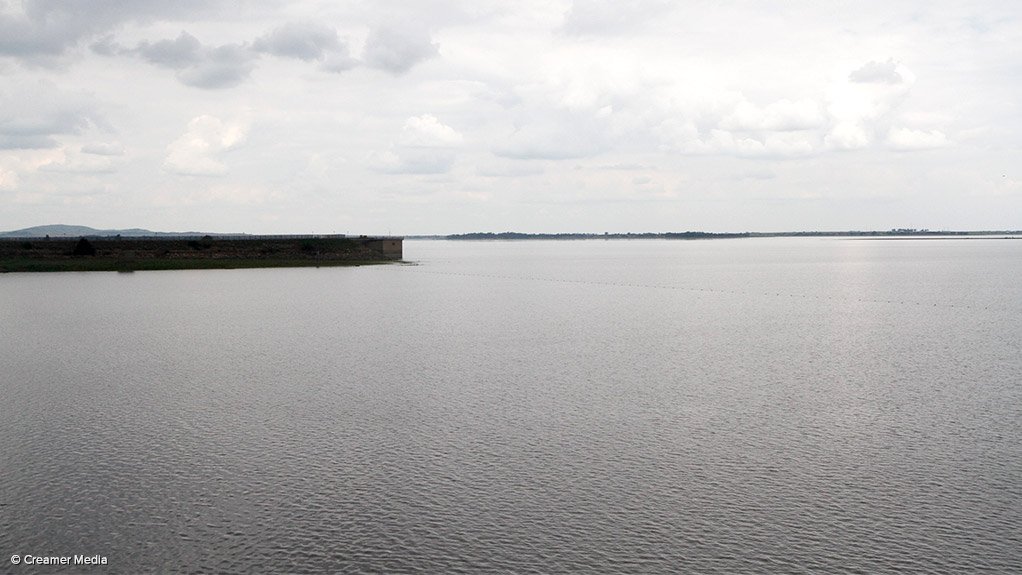/ MEDIA STATEMENT / The content on this page is not written by Polity.org.za, but is supplied by third parties. This content does not constitute news reporting by Polity.org.za.
The recent torrential rains in five provinces have filled to capacity 57 of South Africa’s dams, this whilst more rains are expected by the end of the week. This is according to the weekly dam levels report released by the Department of Water and Sanitation yesterday. The department monitors a total of 211 dams under its operation and maintenance. Of these 13 are below 10% and 33 are between 10% and 40%.
On Sunday the Minister of Water and Sanitation, Nomvula Mokonyane, opened two sluice gates at Vaal Dam after it was filled to capacity. The dam reached 100% on Monday following the heavy downpours that occurred in Free State, Gauteng, North West, Northern Cape and parts of Eastern Cape.
Last week the department warned residents downstream of the Bloemhof and Vaal Dams of possible flooding as a result of the release of water from the two dams together with the expected rains. This warning together with a request to move out of the flood line and further above the banks of the Vaal and Orange Rivers, is still valid especially around the town of Douglas, Northern Cape, where the confluence of the two rivers is.
250 cubic metres per second (cumecs) of water was released from the Bloemhof Dam on Friday 24 February, with an additional 250 on Saturday 25th. This was reduced to 300 104 cubic metres per second were released from the Vaal Dam on Monday 27, increased to 230 cumecs on Tuesday 28th.
These releases were necessitated by the need to protect the infrastructure.
The North West benefitted the most from the recent rains as all but two dams – Groot Marico and Molatedi – are spilling. The province was among those that were most affected by the drought in the past two years as most of its dams were running dry. Meanwhile, the Western Cape which receives its rains in winter remains the driest province as it was not among the recipients of recent rainfalls. Two of the province’s rivers, Prinsrivier and Gamka are currently at 0%. The Buffels and Kammansie rivers are also critical with their latest levels recorded at 6% and 7,3% respectively.
In Cape Town the municipality is battling to supply water for basic needs and has introduced Level 3B water restrictions in order to cope with the dwindling resource. Consequently, the municipality has issued heavy fines to transgressors of water restrictions, and is also naming and shaming them.
The Western Cape and parts of the Northern Cape expect rainfall in the upcoming winter.
Minister Mokonyane said her department was concerned about the water situation in Western Cape and was working with the Provincial Government to try and avert a total disaster. She appealed to residents of provinces that have benefitted from the rains to continue saving water as a norm and as a way of life.
The situation in KwaZulu-Natal has improved as well to 55, 5% from 49, 4% a week ago. The KZN situation is still influenced by the insufficient recovery of dams, considering it was one of the hardest hit provinces. The one example is that of the Umgeni System at which is at 56,2%, still below the 58,5% it was at this time last year. The concern in the province therefore remains.
Due to the hefty recovery of the Integrated Vaal River System, Minister Mokonyane decided that the time was ripe to lift the water restrictions in Gauteng. This will follow due process which dictates the need to gazette the decision. This will be followed by the respective municipalities rescinding these restrictions.
The review of the water restrictions in general will still happen in May as per the normal review of the hydrological cycle.
Issued by the Department of Water and Sanitation
EMAIL THIS ARTICLE SAVE THIS ARTICLE ARTICLE ENQUIRY
To subscribe email subscriptions@creamermedia.co.za or click here
To advertise email advertising@creamermedia.co.za or click here











